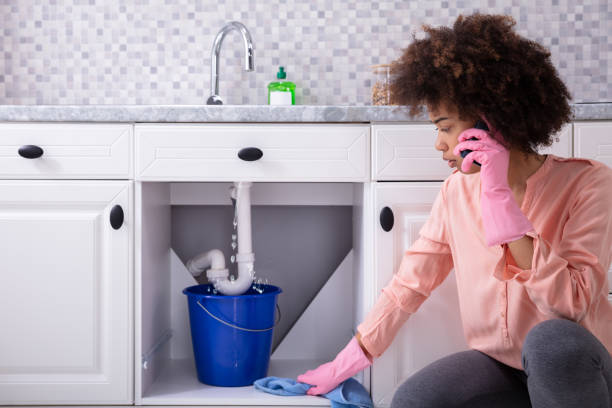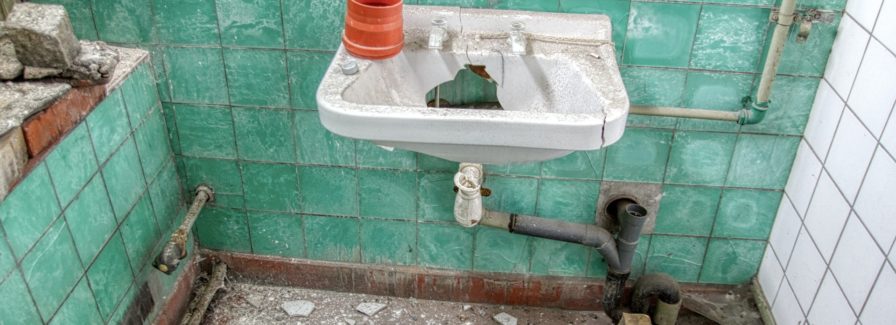We have encountered this post on Main Plumbing Issues Found in Old Houses directly below on the net and accepted it made good sense to share it with you in this article.

Older homes typically feature charm, personality, and history, yet they can likewise bring a host of pipes problems. Whether you're dealing with aging pipelines, low water stress, or leaks, recognizing exactly how to attend to these common troubles is essential to keeping a risk-free and useful home. In this guide, we'll explore the regular plumbing difficulties faced by older homes and supply useful options to maintain your pipes in top form.
Understanding Typical Pipes Problems
Aging Pipelines
One of one of the most common issues in older homes is maturing pipes. Depending on the age in which your home was constructed, the pipes may be made from products that have deteriorated gradually, such as galvanized steel, cast iron, or perhaps lead. These materials can rust, come to be fragile, or establish leaks, causing water damages and potential health hazards.
Low Tide Pressure
If you're experiencing low water stress, it could be due to natural resources, deterioration inside the pipes, or old fixtures that are no longer functioning efficiently. This can be a major aggravation, especially in areas like showers and sinks.
Leaking Pipelines
Leakages are another frequent problem in older homes, usually caused by corroded or worn-out pipes. Also little leakages can bring about substantial water damage, mold development, and boosted water costs otherwise addressed quickly.
Out-of-date Fixtures
Obsolete plumbing fixtures such as faucets, toilets, and showerheads not only look old but may also be less efficient, prone to leaks, or incompatible with modern plumbing standards.
Pipeline Corrosion
Deterioration is an usual problem in older pipelines, specifically those made from galvanized steel or actors iron. Corroded pipelines can limit water circulation, create discoloration, and eventually bring about leakages or pipeline bursts.
Evaluating the Problem of Your Plumbing
Evaluating Noticeable Pipelines
Start by examining any noticeable pipelines in your house, such as those in basements, crawl spaces, or under sinks. Search for indications of deterioration, leakages, or rust, which can show underlying issues.
Checking for Leakages
Look for leaks by checking locations around taps, bathrooms, and under sinks. You can likewise monitor your water meter prior to and after a duration of no water use to discover covert leaks.
Water High Quality Screening
Older pipes can affect the top quality of your water. Conduct a water high quality examination to look for pollutants such as lead, corrosion, or other impurities that may be presented by maturing pipes.
Solutions for Usual Plumbing Issues
Changing Aging Pipes
If your home has old, weakening pipelines, take into consideration replacing them with modern products like copper or PEX. This can be a considerable investment, however it will certainly stop future issues and boost the security and reliability of your plumbing system.
Dealing With Low Water Stress
To take care of low water stress, start by cleaning or changing old fixtures and eliminating mineral build-up in the pipes. If the trouble continues, it may be essential to change sections of rusty pipes.
Repairing and Replacing Leaking Pipelines
For small leaks, you can make use of pipe clamps or epoxy putty as a short-lived repair. However, it's finest to replace leaking pipelines entirely to prevent further damages.
Upgrading Fixtures
Updating old fixtures to contemporary, water-efficient versions can improve your home's pipes performance and reduce water consumption. Try to find fixtures with the WaterSense label for the very best efficiency.
Taking Care Of Pipe Rust
If your pipelines are corroded, replacing them with corrosion-resistant materials like copper, PVC, or PEX is the very best remedy. Regular assessments and water top quality maintenance can assist protect against even more deterioration.
When to Call a Specialist
While some plumbing problems can be managed with do it yourself solutions, there are times when it's finest to call a professional. If you're handling significant leakages, considerable corrosion, or are not sure concerning the problem of your pipelines, a licensed plumbing professional can supply experienced evaluation and fixing.
Preventive Upkeep Tips
Normal Inspections
Frequently check your pipes system for indications of damage. Capturing issues early can prevent costly repair work down the line.
Water Pressure Policy
Ensure your water pressure is within the suggested variety to prevent worrying your pipes and fixtures. A plumber can mount a stress regulatory authority if required.
Water High Quality Upkeep
Set up water filters or softeners if your water high quality is poor. This can safeguard your pipes and fixtures from damage brought on by tough water or contaminants.
Proactive Pipeline Substitute
If your home has very old pipes, consider aggressive substitute prior to significant problems occur. This can save you from emergency situation repair services and water damages.
Final thought
Taking care of plumbing concerns in older homes calls for a combination of watchfulness, preventive maintenance, and prompt upgrades. By comprehending the typical challenges and recognizing when to seek professional help, you can guarantee your pipes system remains useful and trusted for many years to come.
Common Plumbing Issues in Older Homes
Pipe corrosion
Pipe corrosion is a common plumbing issue in older homes. Several factors can cause pipes to corrode:
Water: Ironically, water is the number one cause of pipe corrosion. When water seeps into cracks in pipes, it can cause the metal to rust and break down, leading to leaks or even burst pipes.
Oxygen: Oxygen is another significant culprit in pipe corrosion. When oxygen interacts with water, it can cause the metal to oxidize and weaken.
Chemicals: Chemicals such as chlorine and fluoride can also contribute to pipe corrosion. These chemicals can react with the metal in pipes, causing them to break down over time.
Leaky pipes
Pipes that leak is one of the most common plumbing issues plaguing residents of older houses. While a small leak may not be a problem initially, it can lead to significant problems if left unaddressed. In addition, water damage can be very costly to repair and may cause damage to electric fixtures, promote mold growth and cause many other issues.
Worn-out fixtures
Older homes often have worn-out fixtures which may need replacement. Over time, the finishes on fixtures can wear down, exposing the underlying metal to corrosion. This can cause fixtures to leak or even break completely. It s best to have a professional plumbing contractor regularly inspect the fixtures in older homes and replaces them if necessary.
Faulty water heaters
A leaky water heater can cause severe damage to the home as it can be both a flood and fire hazard. Call a plumber immediately if it appears that the water heater might be leaking.
If the heater isn t working correctly, it could be because the pilot has gone out. The pilot light going out may indicate gas supply issues or leaks. It is also worth checking the thermostat to see if it needs to be adjusted.
If the water heater is making strange noises, it could be due to sediment buildup in the tank. Sediment can interfere with the heating elements and cause them to overheat. Overheating can damage the tank and shorten the lifespan of the water heater.
https://www.norfleetfamilyplumbing.com/blog/common-plumbing-issues-in-older-homes

Hopefully you liked our article on . Thanks for taking the time to read our article. Sharing is good. Who knows, you might be helping someone out. Thanks so much for your time invested reading it.
Try Here